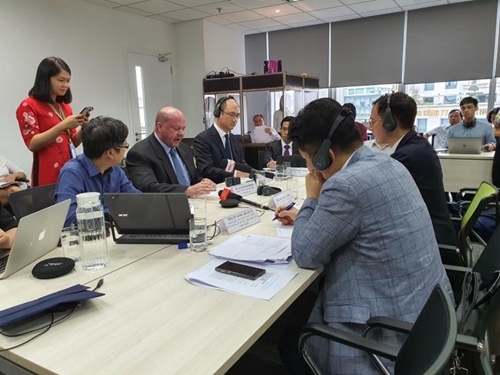They believe Vietnam has great potential for PPP projects, especially in the fields of energy, transport, and infrastructure.
Vu Tien Loc, Chairman of the Vietnam Chamber of Commerce and Industry (VCCI), said building the PPP law is a difficult task but it is necessary for economic recovery post-COVID-19.
    |
 |
|
At the seminar. Photo: bnews |
According to Pham Ngoc Lam, deputy head of the economic bureau at the National Assembly Office, the draft law has now gone through many rounds and opinions have been collected.
Dao Viet Dung from the Asian Development Bank (ADB) said development funds are needed to facilitate the implementation of PPP projects, particularly large-scale projects, and the building of such funds must be transparent.
He also called for more specific stipulations regarding risk sharing mechanisms, to help increase information access for investors.
Nguyen Thanh Hai from the American Chamber of Commerce in Vietnam, said the draft law should not restrict the rights of investors to transfer all shares after project construction is completed.
Lam, who represented the law drafting group, said many opinions sent to the compilation board concern mechanisms on the sharing of risks and turnover increases and decreases prescribed in the draft law, saying they are too strict and more favourable for the public sector.
They also proposed expanding investment fields, explaining that new fields requiring the PPP model may emerge during the participation of the private sector.
Investors should also be allowed to determine the domestic or foreign contractors and subcontractors for their projects, they said.
Most opinions believe regulations regarding the completion of financial arrangements within 12 months from the signing of PPP contracts are not suitable.
The video seminar was jointly held by VCCI, the Institute for Policy Studies, and the U.S. Agency for International Development.
Source: VNA